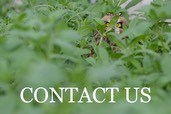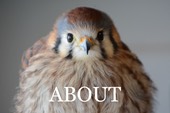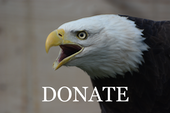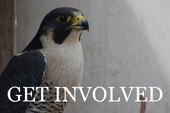Display Pen Progress: There Will Soon be a Roof!
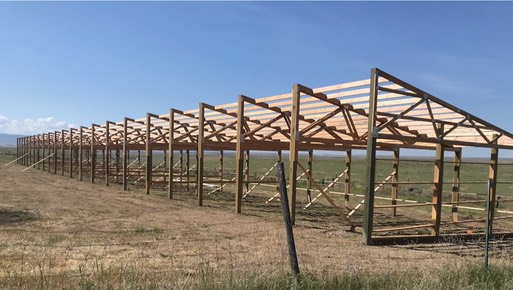
Help Prove the Value of Rehabilitating Raptors
I was told recently by a wildlife policymaker, “Rehabilitation produces no benefit to the populations of raptors in the wild. Rehabilitation merely exists to give the American public another reason to feel good about helping injured wildlife.”
Raptor rehabilitators believe we provide a valuable conservation service, by returning raptors who have been negatively impacted by human activity to the wild, where they can again fulfill their role in the natural world. And we believe that people get involved out of a heartfelt commitment to help protect and heal the wildlife that we humans impact.
We Need Good Data
Unfortunately, until recently, there has been no scientific research regarding the impact that rehabilitation has on raptor populations. We have an opportunity to change that.
Last year, Principal Researchers, Christian Hagen, Ph.D. and John Goodell, Northwest Avian Resources, used BMW’s data to support analysis that rehabilitation can help increase raptor populations in our area and also mitigate for birds lost due to collisions with wind turbines and towers. This is good news for raptors and those who care about them.
But the work by Hagen and Goodell was only an exploratory analysis. We have an opportunity to support a much larger study to develop a first-ever model projecting annual post-release population effects directly due to rehabilitation facilities. Why is this study important?
An Impact Study to Benefit Raptors
When eagles and other raptors are killed as the result of a wind energy project, the wind energy company is required to mitigate for the loss of those birds. Currently, they are using a USFWS-developed Resource Equivalency Analysis (REA) that quantifies how many electric distribution power poles must be retrofit to compensate for this loss of birds from wind turbines. (Yes, the wind industry mitigates by modifying power poles they are not responsible for.) It makes more sense to use an REA that estimates the number of eagles/raptors that need to be rehabilitated to compensate for losses due to the wind industry. This new study will help create that REA.
A new REA will give the wind industry a scientifically based recommendation on how contributing to raptor rehabilitation directly impacts their mitigation efforts for loss of birds. Increased funding through mitigation will create a positive feedback loop for raptor rehabilitation, further improving our ability to release raptors who can successfully reproduce in the wild.
What’s Next?
Hagen’s and Goodell’s deeper analysis will study the details of release data from several rehabilitation centers that admit large numbers of raptors, providing scientific evidence never before assembled. The results will be peer reviewed and published in professional journals and presented at conferences and other venues, potentially around the world. (Prior to being canceled because of the Covid-19 crisis, they were to present their exploratory findings at the Oregon Wildlife Rehabilitation Conference in Salem, Oregon on April 18.)
Their work will provide the building blocks to create an REA for eagle/raptor rehabilitation, which will lead to new options for the wind industry’s mitigation efforts and an additional major funding source for BMW—mitigation funds from wind energy companies.
How You Can Help
This important study needs our support. So, three BMW members have pooled their resources in order to offer a challenge.
They will match every dollar—up to $15,000—donated to BMW for the study. That’s a total of $30,000—a third of the study’s expected budget. This will allow the analysis to begin.
Your donation today to support this study—no matter how small or big—will be an investment in BMW’s future and the future of raptor populations around the country.

